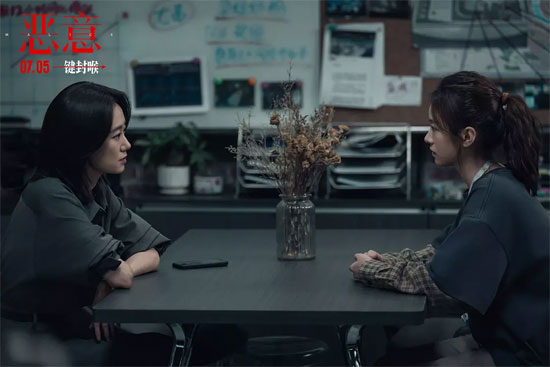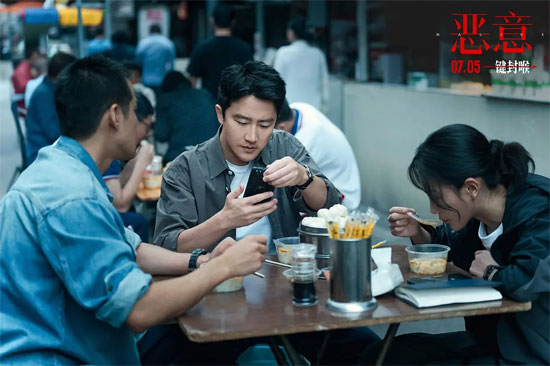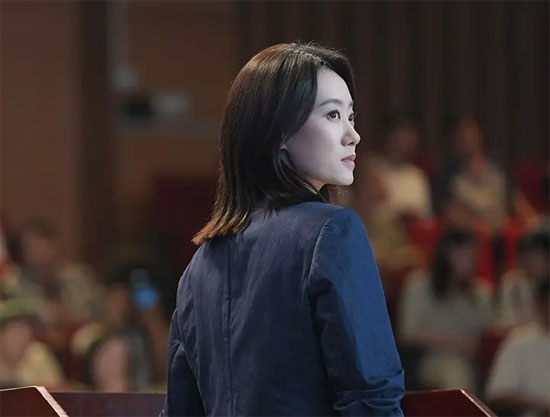Film Name: 惡意 / Malice
This summer’s “Chen Sicheng Film Package” has arrived as scheduled. Similar to his previous suspenseful and socially topical films, ‘Malice’ also follows the “old-meets-new” model, so it’s not hard to imagine that the film also bears the strong imprint of Chen Sicheng’s style.
This is neither entirely good nor entirely bad.

“Malice” tells a story that is overtly explicit, sensational, and unrestrainedly critical, repeatedly rubbing certain basic moral principles and injustices in the audience’s face. It is heavy-handed and spicy, and those with a delicate palate may not be able to stomach it.
However, the film’s narrative pacing is well-controlled, avoiding the pitfalls of chaos, excess, and awkwardness. Even if the subject matter is slightly over-the-top, it doesn’t go overboard, successfully conveying its thematic message.
[Friendly reminder: The following text contains spoilers.]
Personally, I am quite satisfied with the plot of “Malice,” especially the narrative pacing, which adopts a gradual, steady progression.
After the double suicide at Binjiang Third Hospital, the protagonist Ye Pan tries to avoid speculation and report the truth, but investigations don’t happen that quickly. When emotions are running high and every second counts, there needs to be an outlet for those emotions.

The first person to be targeted as the villain was Li Yue, the nurse who fell from the building. She was accused of pushing “Little Angel Jingjing,” a young cancer patient, off the building. Beyond the one-sided account from Jingjing’s mother, You Xi, the public’s “evidence” primarily consisted of judgments about Li Yue’s private life and moral flaws.
In this era where labeling and prejudice are increasingly treated as truth, the suspicion and attacks directed at Li Yue are quite representative. People generally disapprove of others enjoying leisure activities or sharing beautiful photos, especially when there’s room for misinterpretation…
With so much “evidence” and everyone eager to jump on the bandwagon, Ye Pan decided to live-stream an interview with Dao Ye, who claimed to have more revelations. However, he was set up, and Dao Ye directly stated that Li Yue was a good girl, and the fall incident must have had other underlying reasons. Everyone who had condemned Li Yue became cyberbullies.
At this point, the first major turning point occurred, and the blame began to shift toward Jingjing’s family.

You Xi quickly became the next villain, and her selflessly devoted husband Wei Qiang also began to look like a bad person.
Two years ago, after Jingjing became an internet celebrity and gained a lot of attention, her family received a lot of donations, and at the same time, You Xi became pregnant… Thus, the assumption that “a stepfather and biological mother who are savvy with the internet and understand traffic, in order to make money to care for their unborn child, wanted to abandon Jingjing’s life” was established.
The film’s portrayal of You Xi’s ordeal is clearly more nuanced than that of Li Yue, as the “evidence” exposed are objective facts—it’s just a matter of whether one can see the full picture: You Xi did indeed drink heavily at a bar, but it was to sell alcohol and raise funds; she did hesitate when inserting a tube into Jingjing, but that was due to the disorientation caused by prolonged intensive treatment. (This also touches on the sensitive topic of euthanasia for minor cancer patients.)
When Yu Xi could no longer bear the humiliation and prepared to take her own life as a statement, everyone realized that continuing the online harassment had become untenable. Thus, a major turning point emerged, and Ye Pan, who had orchestrated the series of reports, became the ultimate villain.

Regarding this plot twist, the film laid the groundwork for it in the early to mid-section, including Ye Pan’s reputation as a “murderous journalist” and her subtle hints to Chen Chen. As for the revelation that Ye Pan blew herself up to save You Xi, it wasn’t particularly surprising.
Overall, the twists in “Malice” are predictable and not particularly ingenious, but they are steady and well-executed, avoiding forced or awkward turns. It fulfills its purpose—which is an improvement over Xin Yikun’s similarly themed “Trending Topic” from two years ago.
Additionally, “Malice” effectively illustrates a crucial point: when the truth is absent, rumors and speculation immediately fill the void.
This is also why many public opinion incidents are hard to avoid. Investigating the truth takes time, but spreading rumors doesn’t. Especially when some “well-founded speculations and analyses” seem reasonable, by the time the official announcement comes out, many people have already left with their own “truth” (and some only believe their own judgments, not the official statements).

While watching the movie, I felt that the police officers like Liang Guan were quite exhausted. On one hand, they had to follow procedures, gather evidence, and conduct investigations. On the other hand, while monitoring public opinion trends, they also had to avoid being influenced by public sentiment, as baseless accusations and emotional allegations cannot serve as guiding principles for action.
Finally, a few thoughts beyond the movie itself.
Malice cannot be eradicated; as long as there are people and things in the world that others find objectionable, malice will continue to be generated and transmitted. Malice can also cause harm, and in the digital age, it is particularly easy to spread. The harm caused by malice through text, images, or voice rarely results in any accountability.
Sometimes I wish we could implement a strict real-name system for online regulation, where everyone is held accountable for their words and actions, especially in cases involving public opinion events. However, the implementation costs, management risks, and unintended consequences of such a system might be too difficult to bear… So, we can only continue to adapt to the current online environment.

Ye Pan in “Malice” sees it clearly: even if you self-destruct or get exposed, what does it matter? Online trials and attacks can only truly hurt those with sensitive and fragile hearts. Just be a little more resilient.
Take me, for example. I often write and post online, leaving a trail of my words. I inevitably encounter criticism, especially when my views diverge from the “mainstream” or involve controversial topics. Such opinions are particularly prone to attracting malice, with some comments being as harsh as they can be… To say I don’t care at all is impossible, but you can’t control others’ words or actions. The only thing you can do is strengthen your own resilience.
Please specify:Anime Phone Cases » Malice 惡意 2025 Film Review: Only one’s own strength can counteract “malice”